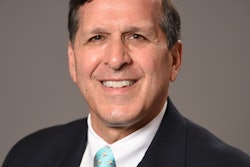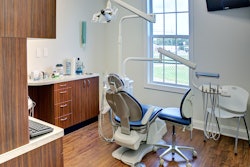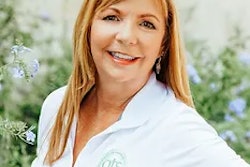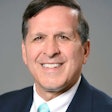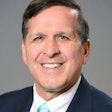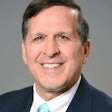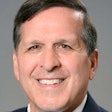With the hiring crisis a constant specter lurking over the dental industry (and so many other industries as well), dental practices are constantly seeking ways to not only set themselves apart from their competition but also to keep their team intact. When I speak with dentists and dental teams around the country, I am often told by dentists that it is the team that distinguishes their practice from others in the area. It's also the team (which was assembled -- and often reassembled -- in COVID's wake) that is vital to the practice's success today.
Remember this, if you are relying on your team to make your practice stand out in your community, it's important to know that your team is functioning at a high level by not only understanding each other but also understanding the customers who walk through the doors of your business every day.
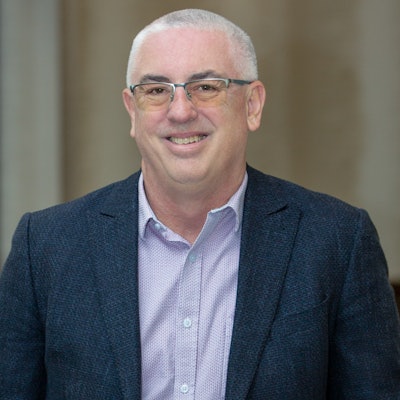 Kevin Henry.
Kevin Henry.
Yes, your practice is a business and your patients are customers. It's something I learned during my nearly 25 years overseeing some of the dental industry's most known journals, including my time here at DrBicuspid.com. It's also an important realization and idea that must constantly be at the forefront of every one of your team member's minds.
I was speaking once at a meeting in Texas and a dental assistant spoke with me after my presentation. She had tears in her eyes as she told me that she was ready to quit her job. She believed that no one was listening to her ideas and she was the only one who cared about moving the practice forward when it came to technology.
After we talked for a little bit, it became very clear to me that she was passionate about technology but didn't know how to help her co-workers and dentist see why she was passionate about it. She didn't know how to communicate her passions to them and show that it wasn't just what she wanted but also what she thought was best for the future of the practice.
You see, she cared about her job. She loved her job. She wanted to stay in her job. However, the fact that she believed she wasn't being heard was enough to drive her away. Perception was reality to her, and she believed no one was listening to her or understood her. The level of frustration was evident in the tears in her eyes.
As a certified Everything DiSC trainer, I see how DiSC and personality assessments have not only changed how co-workers interact with each other but also how dental businesses better connect with their customers. These two impacts have brought down the level of drama in the practice while raising case acceptance rates. Both of these results make the practice a better place to work.
Let me show you three ways that I have seen personality assessments change dental practices for the better. As you read this, think about if your business could use a boost in any of these three areas.
An important asset that far too many practices are not using is the power to genuinely understand teammates and learn what makes them tick. What if we could move the conversation forward in a positive direction or say things in such a way that it generates some positive results? Do you think that would be a dramatic shift in your practice?
You can understand your new hires better.
One of my professional passions is working with dental assistants. I know, from talking to both assistants and dentists, that hiring the right assistant can make the difference between your practice operating like a well-oiled machine or one that sputters along.
I have heard so often that dentists are surprised by assistants (and other team members) after they’re hired in their work habits, their ability to communicate with patients, their lack of understanding of team goals, etc. They feel like they asked the right questions and heard the right answers during the interview. However, the person who walked in on Monday was different than the person whom they interviewed on Thursday.
A dentist in Missouri once told me that she thought the assistant whom she hired must have undergone a lobotomy between the time she was interviewed and the time she started her job. The smile and easygoing nature was replaced by a rough, unforgiving communication style. Immediately, her team members were put off, and drama began to build in the practice.
How does this happen? I believe part of it is due to the questions that are asked during the job interview. Part of it also comes from not understanding the interviewee's desires and motivations past just getting the job.
That's where personality assessments can come into play. By having a new employee complete a personality assessment, you can learn more about him or her than the answers given to your questions during the job interview. You can see why that person answered a question in a certain way. You can also get a glimpse into their motivations and what truly drives them.
By looking at a personality assessment, you can not only get a better feel for that employee's motivations, but you can also picture how those motivations can fit in with the other workers in your business.
Choosing your next employee is critical to the success of your business. Gaining insight into a person's personality can help ensure that your choice is indeed the right one.
You can glean a better understanding of your team.
Whether you're looking to integrate a new person into your practice or find ways to bring your current team closer together, personality assessments can help solve some of the drama that may be infiltrating your practice.
Often it isn't what is said in the practice but also how it is said that makes a difference. Team members often want the same thing, yet the tone of how something is said can make another person's defenses go up and opportunities for collaboration wither away.
There is often the nonverbal elements of communication that affect the practice as well: the heavy sighs, the eyerolls, the stomping of feet down the hallway, the slamming of a drawer or door. These actions not only heighten the drama in the practice but are also picked up by your customers ... and those customers would then likely feel very uncomfortable in your place of business. And that's not good for business at all.
I once visited a practice in Florida where the assistant and hygienist couldn't stand to be in the same room with each other. They avoided each other in the hallway of the practice and when they had to work together, it was very uncomfortable ... for them and the patient in the chair.
With personality assessments, team members can not only see their own styles and characteristics, but they also gain insight into their co-workers. Someone who seems very straightforward or controlling may have that as their personality, so how can others learn to work with that person so his or her personality is understood rather than it being a roadblock?
These personality assessments can provide valuable clues as to what other team members want and how people can work together toward a common goal or mission. I've personally seen these assessments melt away barriers that were keeping team members from truly becoming a cohesive unit. If you're looking to bring your team closer, personality assessments and training on what they mean can do just that.
You can communicate more effectively with patients.
Just like personality assessments can help co-workers understand each other better, they can also be used to help team members comprehend the needs of their patients as well as what will help them accept treatment or take the next steps in their oral health journey.
There is a practice in Oregon that is using a 60-second personality assessment (email me at the address below if you're interested in receiving this) on their patients to understand them better. After a treatment plan is created, that same practice pairs a team member with the same personality style as the patient to explain what the dentist's findings were and the potential next steps. The practice has seen a dramatic rise in their case acceptance rates simply because they took the time to understand what their patient really wanted and how to communicate with them.
That patient's personality style is included in his or her patient notes for the next time they visit the practice. This helps create an experience that best suits every patient every time he or she walks through the door.
Different kinds of people with different emotions and motivations sit in your chairs every day. How are you working to treat them as individuals rather than just as patients? Personality assessments can give you a greater understanding of your customers, which can help you connect with them in ways you didn't think was possible.
So what can personality assessments do for your practice? Plenty. If you're ready to take the next step and talk about what it would take to incorporate these ideas into your business with in-person or virtual training, drop me a line at [email protected].
The comments and observations expressed herein do not necessarily reflect the opinions of DrBicuspid.com, nor should they be construed as an endorsement or admonishment of any particular idea, vendor, or organization.




